On the ninth day of camp we woke up a little after 6am. The children were supposed to wake us up at 5am but due to a lack of alarm clocks we were woken up at 6:15 or so. Of the handful of working clocks that I saw in the Mongolian countryside only three were within half an hour of the correct time. But regardless of the actual time it felt like 5am. After a hearty breakfast of beef noodle soup we each grabbed five dumplings and three biscuits and stuffed them in our bags. At 6:59 we were on the road walking Northeast out of the camp just as the sun surfaced over the hills.
The hike was slow at first. Everyone followed the feet in front of them and didn't talk. We were all still waking up. The silence was broken by our first water crossing. The trail took us straight into a stream that was about eighteen inches at it's deepest. Two of the monks stripped off their shoes, rolled up their pants, and splashed across before anyone else knew what was happening. The rest of us watched and waited. I'm not sure what we were waiting for but it was clear that no one was excited to cross the river. Two minutes of sitting on the bank imagining our wet feet on the other side and a monk popped out of the bushes. He had disappeared without any of us noticing and aparently found something interesting upstream. It was a tree that spanned the stream.
At the next water crossing we didn't bother looking for a tree and just walked across, jumping over the deeper parts. By that point the sun was up and our feet dried quickly. The rest of the hike was more or less uneventful. Whenever we encountered a spiderweb blocking our path we went around it rather than walking through it. I like to think that it was a monk "let live" type of thing but I have a feeling they were just scared of spiders. Four hours in and we made it to the mountain. Ezra and two of the monks were up ahead and gave the rest of us an idea of how far we'd have to go: all the way to the top. It looked like a long way but in actuality it was only twenty minutes to the cave.
Finally a chance to relax...
The cave itself was pretty amazing. The first thing everyone did was strip off any loose clothing that they were wearing and climbed into the wishing hole. It was a tight squeeze for some people *typing as I nudge Richard*. Supposedly the more you've sinned the harder it is for you to get out of the hole.
It was very hard for Richard to get out.
I explored a little deeper into the cave with a few monks and found some ladders into small claustrophobia inducing passages and some bats. Other than that the bowels of the cave just looked like a cave.
The monks chanted for half an hour while we ate our lunch outside the entrance.
... and enjoyed the view.
The walk back was quick. We all left together but Ezra, Amara, and I made it to the first water crossing first. We decided to keep going and let everyone catch up. Three hours later we were back at the camp. Two hours after we arrived everyone else started filing in out of the woods. Apparently there were some stragglers that the group waited for at each water crossing. At one point Richard and the monk teacher Bayraa took a nap while they waited. It was a long hike but well worth it. Fifteen miles round trip.
The last few days at the monastery were uneventful and very relaxing. We alternated between putting the finishing touches on the toilet and hanging out with the monks. Leaving was a little more eventful.
A quick group photo from our last day at the monastery.
Thursday morning, day thirteen, we woke up at eight and finished packing up our stuff. After breakfast we found out that the bus coming to pick up the monks was no longer coming. In the new plan most of the monks would pile into Chimga's van and four would come with us in the Niva to Erdenebulgan, about an hour drive. Chimga's van would take half of the monks and us to the river to cross by boat. The van would then return to pick up the other half and be towed across by a tractor. We would then rendezvous at Bimba's house (where the Niva was hopefully waiting for us) and caravan to Erdenbulgan.
Had it not been for a six foot wide section of eight-foot deep water we could have waded all the way. The river was below our waists for most of its width.
Needless to say we made it across and did not drown. We ferried all the kids across and Bayraa and I returned for the two locals and their motorcycle.
An hour walk back to Bimba's house and we went straight for the Niva. We held our breaths as I turned the key but there was no need. The car started just fine. Another hour and we spotted a silver something across the river and downstream. Richard and I walked along the shore and confirmed our suspicions that it was Chimga's car. What we didn't see was a tractor. We kept walking and made it down to a rocky shore right across from Chimga's car. There was a Russian jeep parked there. Its owner was in the middle of the river stacking rocks about a foot high out of the water. Richard and I assumed that the Russian jeep was going to make a go of it and if it made it across the mini van would then give it a shot. The van would have some piece of mind knowing that an off-road jeep that sits eight inches higher than the van and was built to cross rivers could make it. Nope! The Toyota mini van loaded with ten people went first. About a quarter of the way across the van slowed down to a crawl. For twenty seconds or so Richard thought it had stopped. But no, it persevered. Halfway across the van turned downstream, following the markers the jeep driver had set out. Then it turned back upstream and eventually (five minutes to cross a 100m river) made it to our bank. Ten feet out of the water the van died. It wouldn't start again. I walked back to Bimba's and brought the rest of the monks and Ezra to the van. We waited around for an hour and a half while Chimga's husband poked around in the engine bay. No luck. Ezra, Richard, and I left with our four monk passengers.
An easy drive back to Erdenebulgan. Amara threw up, we delivered a note to call for a doctor for a woman with appendicitis in the countryside, we filled our gas tank and waved goodbye to Erdenebulgan and unmapped Mongolia.
The only notable thing that happened during the drive back to Ulaanbaatar was at 11pm on the first day of driving. I was driving slowly through a town when a horse jumped in front of the car. The Mongolian atop the horse was swaying a bit. He spoke to us in Mongolian and seemed polite. He hopped off the horse and came to the window. He smelled like vodka and didn't seem polite up close. He reached in grabbed my seatbelt with both hands then tried to open the door. Ezra said go so I dumped the clutch and sped out of town. He kicked the car but didn't follow us.
On the drive back to UB we called our college friend Mihi who we knew had just moved there with her family. We told her that we were going to be staying in the city for a day or two and asked if she wanted to meet up. She and her mother insisted that we stay with them. We didn't refuse. So after 36 hours of driving, sleeping in the car, and two weeks without a shower we pulled up to Mihi's apartment complex, parked between two identical black Range Rovers and walked into the middle of her parents' dinner party. I sat next to the chief economic advisor for the UN in Mongolia and listened to stories about long hikes by helicopter with the German Ambassador. I guess you could say it was a bit of a shift from the no-running-water countryside in which we'd spent the previous two weeks.
Our Niva parked between two identical black Range Rovers in front of the Joshi's building. We fit right in, wouldn't you say?
Six days later and we're still here. (Actually, I'm posting this four days after typing it... waiting for Ezra to post his blog to keep things chronological). I've met some incredibly hospitable people on this trip and the Joshis are at the top of the list (up there with Misha's family). We've been enjoying Japanese, Italian, Chinese, and home cooked Indian meals. The past five days we've spent working on some logistics and touring Ulaanbaatar. Bayraa, Chimga, and the rest of the monks made it back safely to UB safely. Apparently their mini van started about thirty minutes after we left them by the side of the river.
Bayraa spent a few days touring us around the city including the monastery where he teaches. It's the biggest monastery (or maybe group of monasteries) in UB and we saw most of the monks who were at the camp. Unfotunately, they couldn't speak to us because they were in the middle of chanting and other Buddhist ceremonial stuff. It was nice to see them none the less. It was also nice to get a smile or a wave from one of the monks while we were standing with all the other tourists. When a monk puts down the shell that he's blowing into in the middle of a ceremony to wave and smile at you while all the other tourists watch in awe you feel pretty cool.
Left to right: Mihi's younger brother Aadi (hidden), Mihi, Mihi's parents Arvind and Neena, Rich, Ezra, and Bayraa (telling us the story of his monastery).
Bayraa's monastery was founded by this Indian monk and is still funded by a sister monastery in India.
This chair has never been used as only the Dalai Lama can sit in it.
Tuesday night Chimga invited us over for dinner at their apartment. The food was great. We started with a potato salad - something that the Mongolians picked up from the Russians and eat for most meals. Our main course was sliced steak, carrot salad, and rice. Chimga also made a western green salad, something that she picked up while visiting the U.S. Dinner was great and we were in high spirits when Chimga mentioned that the camp had been sold to a "corporation" in an under-the-table deal. It was clear that this was weighing very heavily on her mind, and rightly so. The camp was built and jointly owned by the Tributary Fund and the Tiamen Conservation Fund. From what we gathered through Chimga someone at the Tiamen Conservation Fund was pressured into selling the camp to the son of the ex-president. Now there's a good chance that camp will be turned into (and likely exploited as) a tourist destination. Don't really know what to make of this. It was our first firsthand look at corruption. Everything that we put into the toilet - which pales in comparison to what TTF, TCF, and many of the local Mongolians have put into the camp - may be turned into a for-profit tourist destination. And, no doubt, the type of tourism that the company (the name of which remains a mystery to those involved on the not for profit side) will be detrimental to the local economy and environment. Chimga will fight to make sure that this will not happen. The current plan is to encourage the locals to form a co-op to legally purchase the land from the government and not allow the corporation to setup camp. This doesn't sound like a challenge but in reality it is for a number of cultural reasons. So we hope for the best and we'll stay in contact with Chimga for updates and to offer our help if possible. If anyone would like to contribute to the Tributary Fund please click here. And if you would like to know anything else about TTF or their work in Mongolia you can check out their website or contact one of us and we'd be happy to talk with you about it.
On a slightly happier note, two days ago as the three of us were enjoying the paradise known as the Joshi's apartment and procrastinating on our blog posts I was wondering where the big story was in my "section." I was envious of Richard and Ezra who had the first two sections and what I thought were better stories. But then Thursday happened... (Cue next post which may be a day or five away...)
- Jack
We were hiking to the cave where it is believed that Dayan Derkh lived after evading the Mongol army. Dayan Derkh is a hero/legend/myth in Mongolian history. He was a shaman who after stealing one of Chenggis Khaan's daughters fled along the river discarding garments as he rode to lighten his load. The areas along the river where he fled (and where the monastery and camp are located) are named for the pieces of Dayan Derkh's clothing that were found at each. There was a place area close to us called "shoe." Anyway, after evading the Mongol army Dayan Derkh lived in a cave. All the monks wanted to go to said cave and so we were.
The hike was slow at first. Everyone followed the feet in front of them and didn't talk. We were all still waking up. The silence was broken by our first water crossing. The trail took us straight into a stream that was about eighteen inches at it's deepest. Two of the monks stripped off their shoes, rolled up their pants, and splashed across before anyone else knew what was happening. The rest of us watched and waited. I'm not sure what we were waiting for but it was clear that no one was excited to cross the river. Two minutes of sitting on the bank imagining our wet feet on the other side and a monk popped out of the bushes. He had disappeared without any of us noticing and aparently found something interesting upstream. It was a tree that spanned the stream.
At the next water crossing we didn't bother looking for a tree and just walked across, jumping over the deeper parts. By that point the sun was up and our feet dried quickly. The rest of the hike was more or less uneventful. Whenever we encountered a spiderweb blocking our path we went around it rather than walking through it. I like to think that it was a monk "let live" type of thing but I have a feeling they were just scared of spiders. Four hours in and we made it to the mountain. Ezra and two of the monks were up ahead and gave the rest of us an idea of how far we'd have to go: all the way to the top. It looked like a long way but in actuality it was only twenty minutes to the cave.
Finally a chance to relax...
The cave itself was pretty amazing. The first thing everyone did was strip off any loose clothing that they were wearing and climbed into the wishing hole. It was a tight squeeze for some people *typing as I nudge Richard*. Supposedly the more you've sinned the harder it is for you to get out of the hole.
It was very hard for Richard to get out.
I explored a little deeper into the cave with a few monks and found some ladders into small claustrophobia inducing passages and some bats. Other than that the bowels of the cave just looked like a cave.
The monks chanted for half an hour while we ate our lunch outside the entrance.
... and enjoyed the view.
The walk back was quick. We all left together but Ezra, Amara, and I made it to the first water crossing first. We decided to keep going and let everyone catch up. Three hours later we were back at the camp. Two hours after we arrived everyone else started filing in out of the woods. Apparently there were some stragglers that the group waited for at each water crossing. At one point Richard and the monk teacher Bayraa took a nap while they waited. It was a long hike but well worth it. Fifteen miles round trip.
The last few days at the monastery were uneventful and very relaxing. We alternated between putting the finishing touches on the toilet and hanging out with the monks. Leaving was a little more eventful.
A quick group photo from our last day at the monastery.
Thursday morning, day thirteen, we woke up at eight and finished packing up our stuff. After breakfast we found out that the bus coming to pick up the monks was no longer coming. In the new plan most of the monks would pile into Chimga's van and four would come with us in the Niva to Erdenebulgan, about an hour drive. Chimga's van would take half of the monks and us to the river to cross by boat. The van would then return to pick up the other half and be towed across by a tractor. We would then rendezvous at Bimba's house (where the Niva was hopefully waiting for us) and caravan to Erdenbulgan.
At 10am the van dropped about ten of us off at the river where we'd cross by boat. As the van pulled away Bayraa talked to two Mongolians who were waiting to cross. They told him that they had been waiting there for three hours. The boatman was missing and the boat was on the other side of the river. Mongolians are very wary of water and it's almost unheard of to swim. Jokingly, Bayraa said that we (the Americans who can swim) should swim across and bring the boat back. We said "okay" and went for it. Bayraa, the monks, and the two locals watched intently as we waded in and started swimming. They were all very skeptical that we'd (1) attempt to swim and (2) make it across without drowning. Bayraa was especially hesitant to let us swim.
Had it not been for a six foot wide section of eight-foot deep water we could have waded all the way. The river was below our waists for most of its width.
Needless to say we made it across and did not drown. We ferried all the kids across and Bayraa and I returned for the two locals and their motorcycle.
An hour walk back to Bimba's house and we went straight for the Niva. We held our breaths as I turned the key but there was no need. The car started just fine. Another hour and we spotted a silver something across the river and downstream. Richard and I walked along the shore and confirmed our suspicions that it was Chimga's car. What we didn't see was a tractor. We kept walking and made it down to a rocky shore right across from Chimga's car. There was a Russian jeep parked there. Its owner was in the middle of the river stacking rocks about a foot high out of the water. Richard and I assumed that the Russian jeep was going to make a go of it and if it made it across the mini van would then give it a shot. The van would have some piece of mind knowing that an off-road jeep that sits eight inches higher than the van and was built to cross rivers could make it. Nope! The Toyota mini van loaded with ten people went first. About a quarter of the way across the van slowed down to a crawl. For twenty seconds or so Richard thought it had stopped. But no, it persevered. Halfway across the van turned downstream, following the markers the jeep driver had set out. Then it turned back upstream and eventually (five minutes to cross a 100m river) made it to our bank. Ten feet out of the water the van died. It wouldn't start again. I walked back to Bimba's and brought the rest of the monks and Ezra to the van. We waited around for an hour and a half while Chimga's husband poked around in the engine bay. No luck. Ezra, Richard, and I left with our four monk passengers.
An easy drive back to Erdenebulgan. Amara threw up, we delivered a note to call for a doctor for a woman with appendicitis in the countryside, we filled our gas tank and waved goodbye to Erdenebulgan and unmapped Mongolia.
The only notable thing that happened during the drive back to Ulaanbaatar was at 11pm on the first day of driving. I was driving slowly through a town when a horse jumped in front of the car. The Mongolian atop the horse was swaying a bit. He spoke to us in Mongolian and seemed polite. He hopped off the horse and came to the window. He smelled like vodka and didn't seem polite up close. He reached in grabbed my seatbelt with both hands then tried to open the door. Ezra said go so I dumped the clutch and sped out of town. He kicked the car but didn't follow us.
On the drive back to UB we called our college friend Mihi who we knew had just moved there with her family. We told her that we were going to be staying in the city for a day or two and asked if she wanted to meet up. She and her mother insisted that we stay with them. We didn't refuse. So after 36 hours of driving, sleeping in the car, and two weeks without a shower we pulled up to Mihi's apartment complex, parked between two identical black Range Rovers and walked into the middle of her parents' dinner party. I sat next to the chief economic advisor for the UN in Mongolia and listened to stories about long hikes by helicopter with the German Ambassador. I guess you could say it was a bit of a shift from the no-running-water countryside in which we'd spent the previous two weeks.
Our Niva parked between two identical black Range Rovers in front of the Joshi's building. We fit right in, wouldn't you say?
Six days later and we're still here. (Actually, I'm posting this four days after typing it... waiting for Ezra to post his blog to keep things chronological). I've met some incredibly hospitable people on this trip and the Joshis are at the top of the list (up there with Misha's family). We've been enjoying Japanese, Italian, Chinese, and home cooked Indian meals. The past five days we've spent working on some logistics and touring Ulaanbaatar. Bayraa, Chimga, and the rest of the monks made it back safely to UB safely. Apparently their mini van started about thirty minutes after we left them by the side of the river.
Bayraa spent a few days touring us around the city including the monastery where he teaches. It's the biggest monastery (or maybe group of monasteries) in UB and we saw most of the monks who were at the camp. Unfotunately, they couldn't speak to us because they were in the middle of chanting and other Buddhist ceremonial stuff. It was nice to see them none the less. It was also nice to get a smile or a wave from one of the monks while we were standing with all the other tourists. When a monk puts down the shell that he's blowing into in the middle of a ceremony to wave and smile at you while all the other tourists watch in awe you feel pretty cool.
When he first showed up at the Joshi's apartment we barely recognized him in his "city" attire. Bayraa isn't the monk I expected to meet. After leaving the Joshi's apartment complex and merging into the middle of UB traffic (which is ridiculous) the first thing he did was honk at a car and flip off its driver. (A quick note about UB traffic. There are traffic signals at some intersections. No one pays any attention to them. There is absolutely no concept of right of way. It took us 1.5 hours to make it 4 miles across the city on our way in to town. Fifteen minutes of that was spent without moving an inch in the middle of an intersection. We were boxed in by two cars to our right, oncoming traffic to our left, a perpendicular bus behind us and a perpendicular truck and trailer in front of us. Nothing moved for the fifteen minutes while we sat there).
Left to right: Mihi's younger brother Aadi (hidden), Mihi, Mihi's parents Arvind and Neena, Rich, Ezra, and Bayraa (telling us the story of his monastery).
Bayraa's monastery was founded by this Indian monk and is still funded by a sister monastery in India.
This chair has never been used as only the Dalai Lama can sit in it.
Tuesday night Chimga invited us over for dinner at their apartment. The food was great. We started with a potato salad - something that the Mongolians picked up from the Russians and eat for most meals. Our main course was sliced steak, carrot salad, and rice. Chimga also made a western green salad, something that she picked up while visiting the U.S. Dinner was great and we were in high spirits when Chimga mentioned that the camp had been sold to a "corporation" in an under-the-table deal. It was clear that this was weighing very heavily on her mind, and rightly so. The camp was built and jointly owned by the Tributary Fund and the Tiamen Conservation Fund. From what we gathered through Chimga someone at the Tiamen Conservation Fund was pressured into selling the camp to the son of the ex-president. Now there's a good chance that camp will be turned into (and likely exploited as) a tourist destination. Don't really know what to make of this. It was our first firsthand look at corruption. Everything that we put into the toilet - which pales in comparison to what TTF, TCF, and many of the local Mongolians have put into the camp - may be turned into a for-profit tourist destination. And, no doubt, the type of tourism that the company (the name of which remains a mystery to those involved on the not for profit side) will be detrimental to the local economy and environment. Chimga will fight to make sure that this will not happen. The current plan is to encourage the locals to form a co-op to legally purchase the land from the government and not allow the corporation to setup camp. This doesn't sound like a challenge but in reality it is for a number of cultural reasons. So we hope for the best and we'll stay in contact with Chimga for updates and to offer our help if possible. If anyone would like to contribute to the Tributary Fund please click here. And if you would like to know anything else about TTF or their work in Mongolia you can check out their website or contact one of us and we'd be happy to talk with you about it.
On a slightly happier note, two days ago as the three of us were enjoying the paradise known as the Joshi's apartment and procrastinating on our blog posts I was wondering where the big story was in my "section." I was envious of Richard and Ezra who had the first two sections and what I thought were better stories. But then Thursday happened... (Cue next post which may be a day or five away...)
- Jack
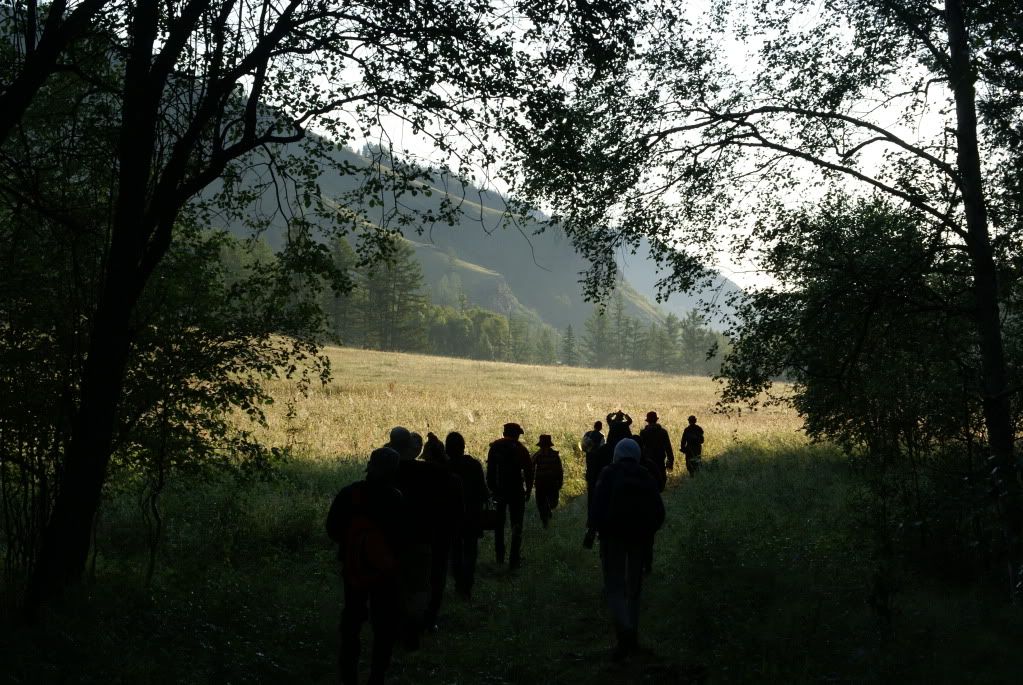


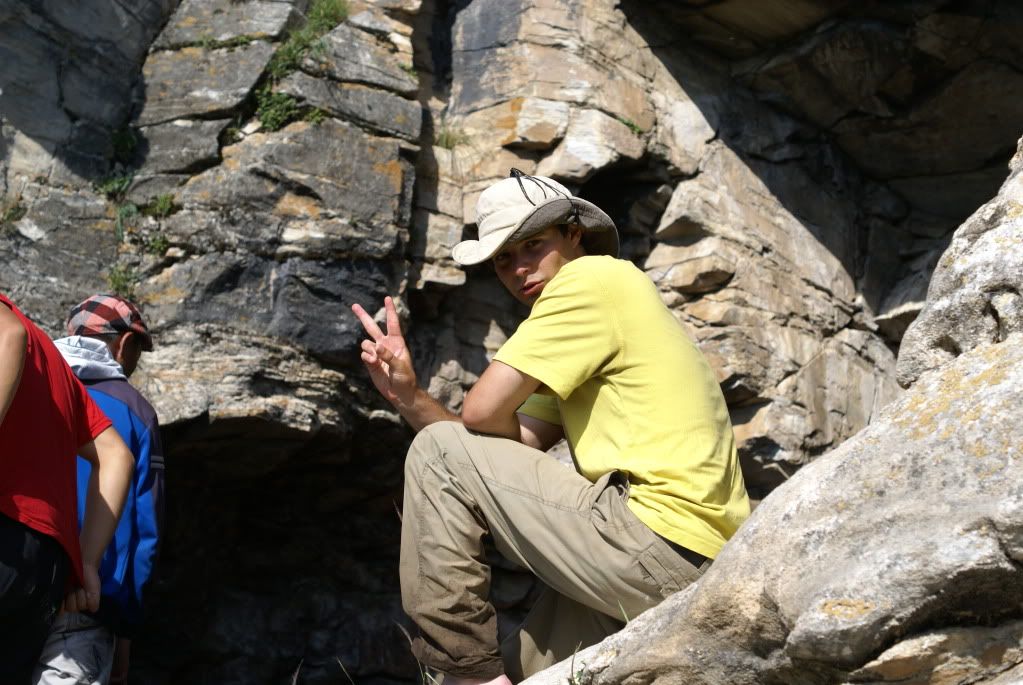
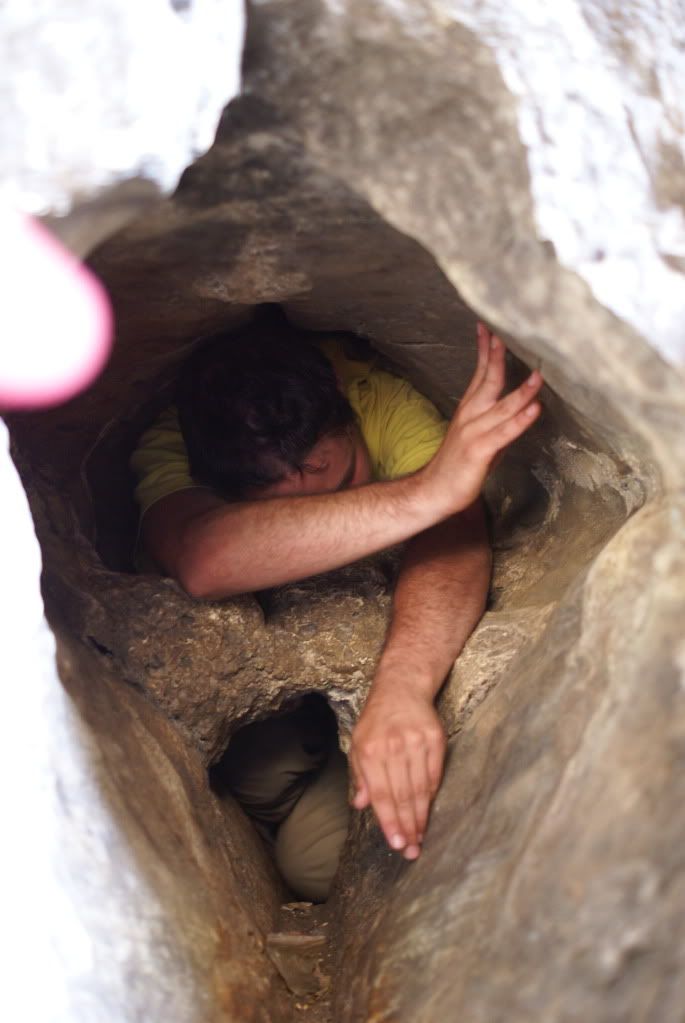

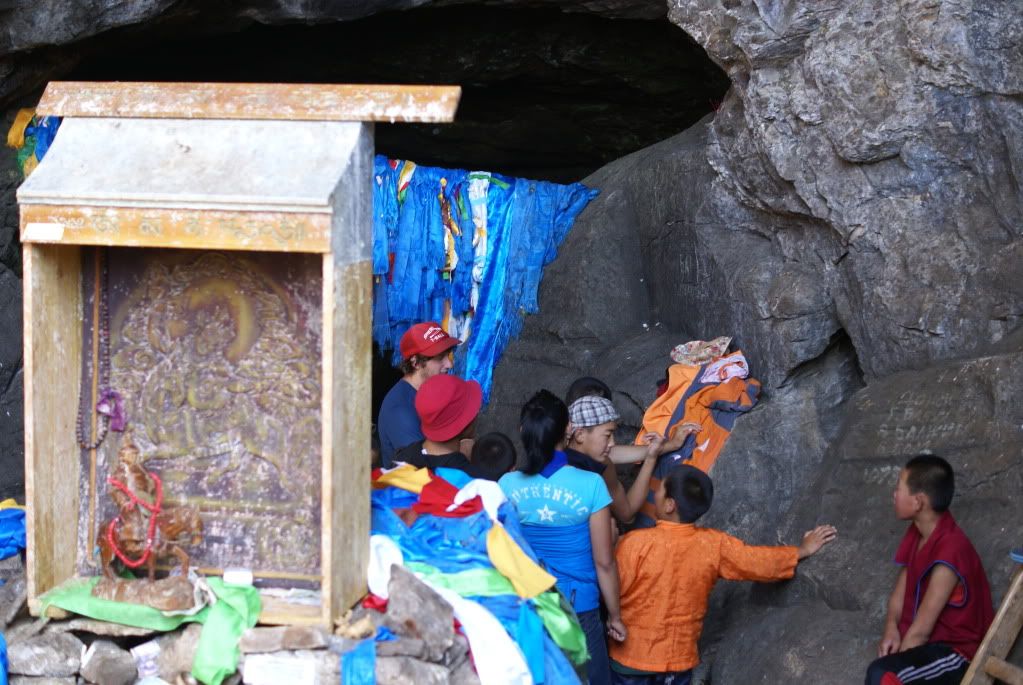
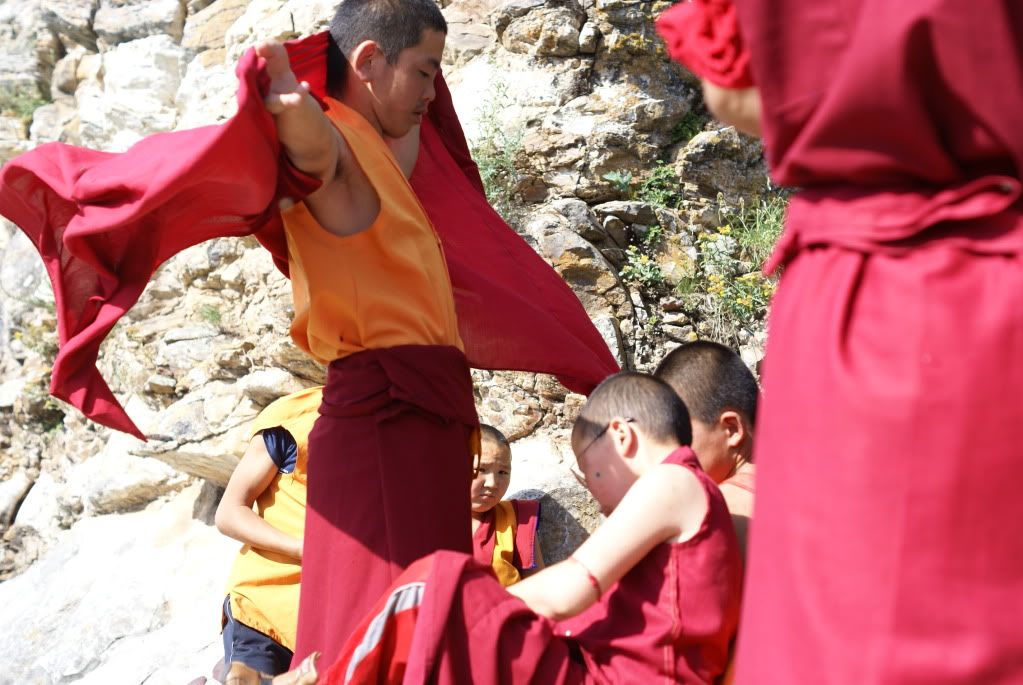
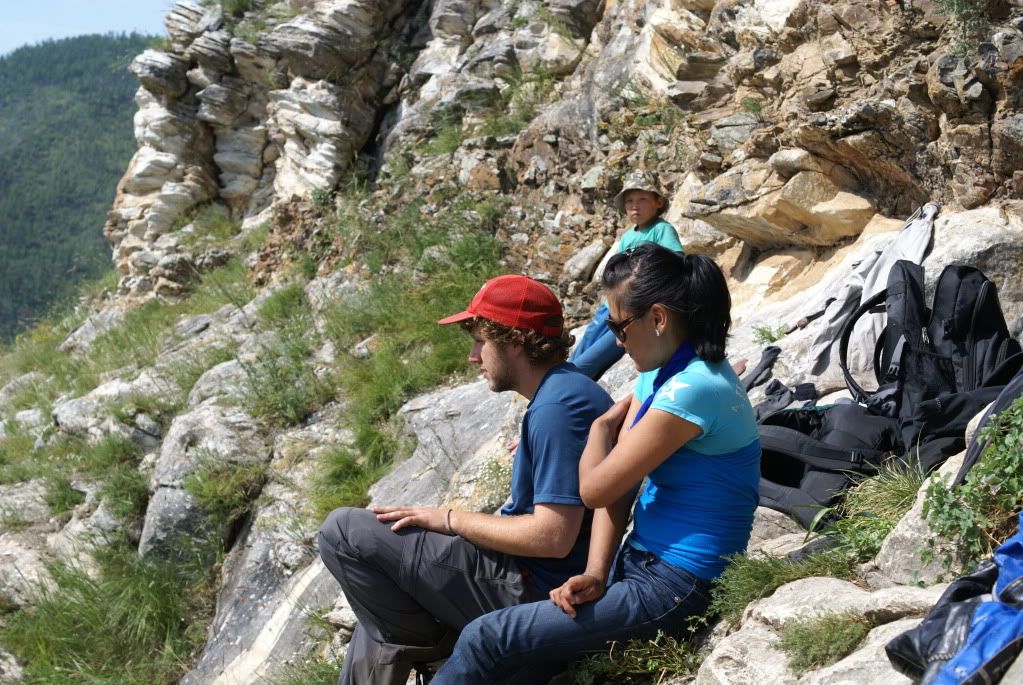
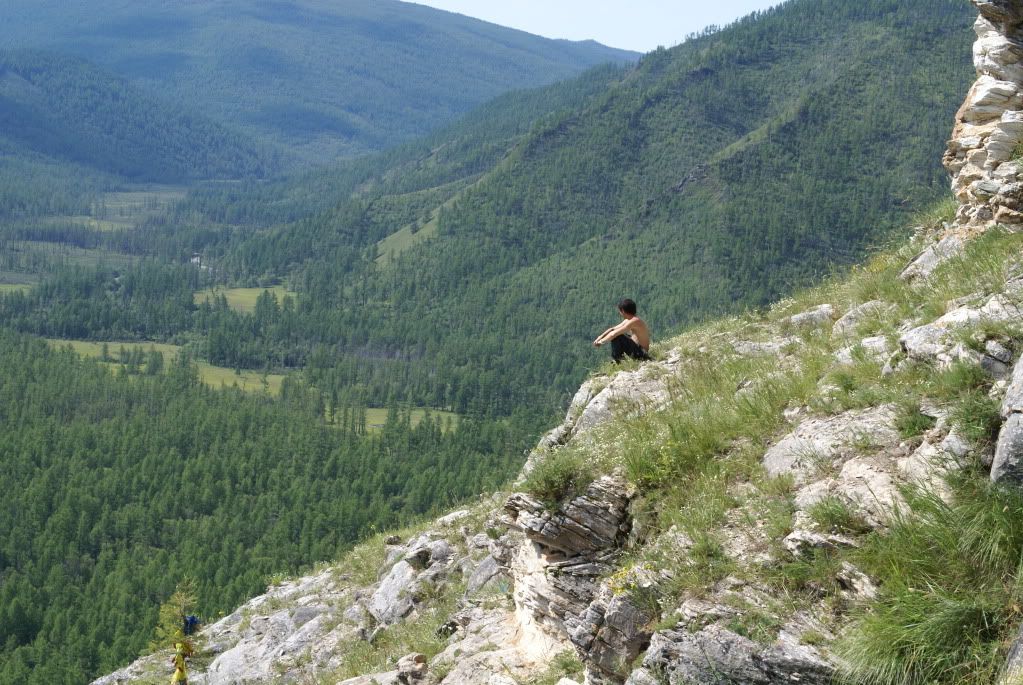
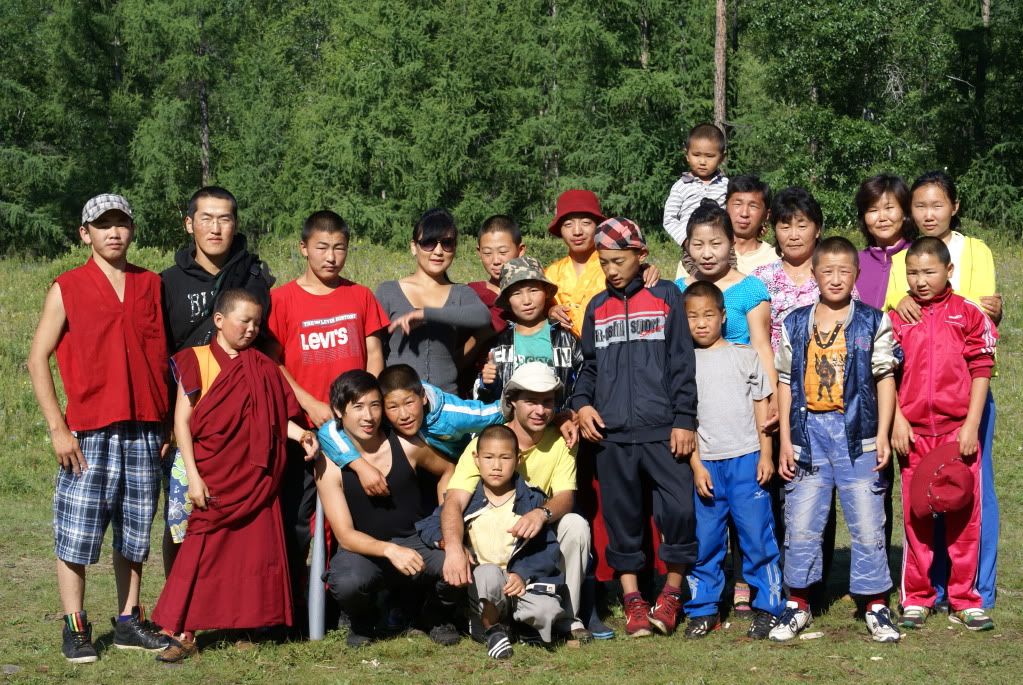



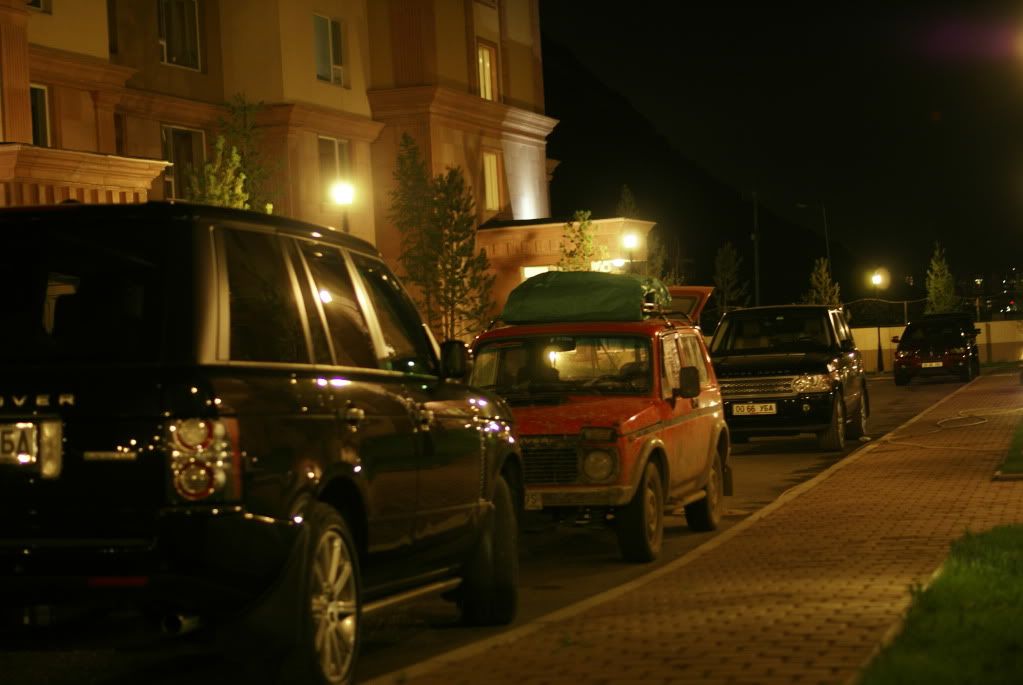
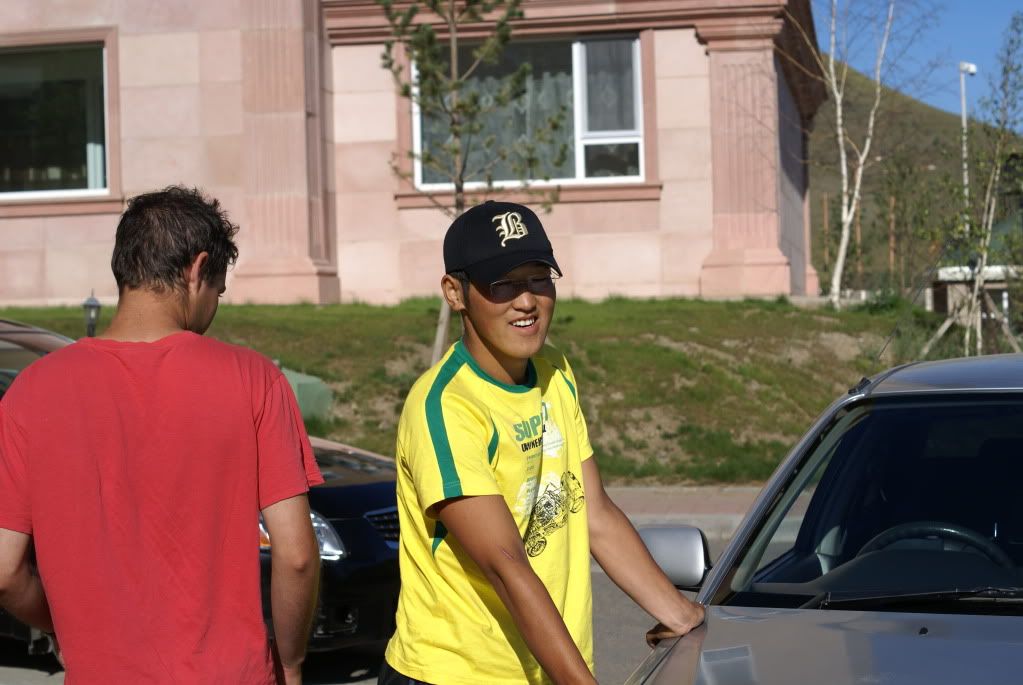
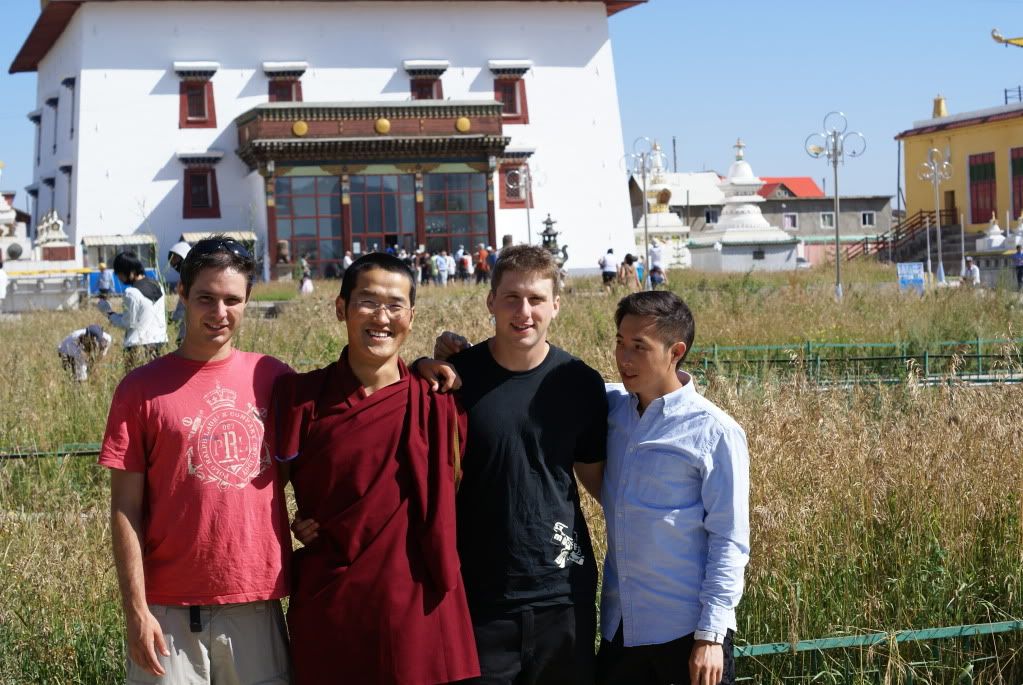
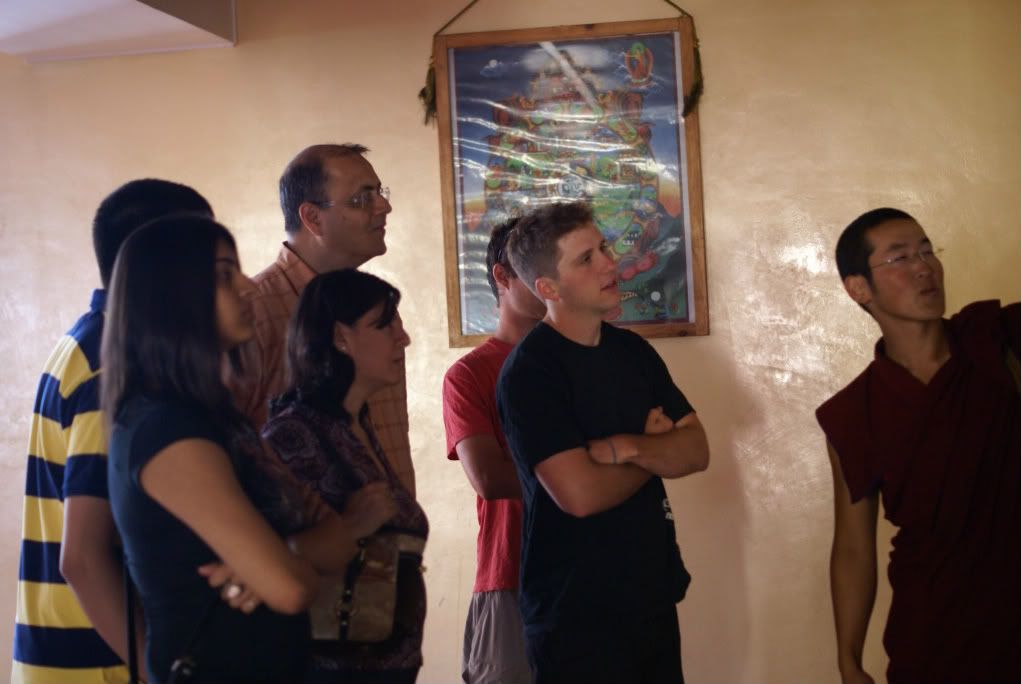
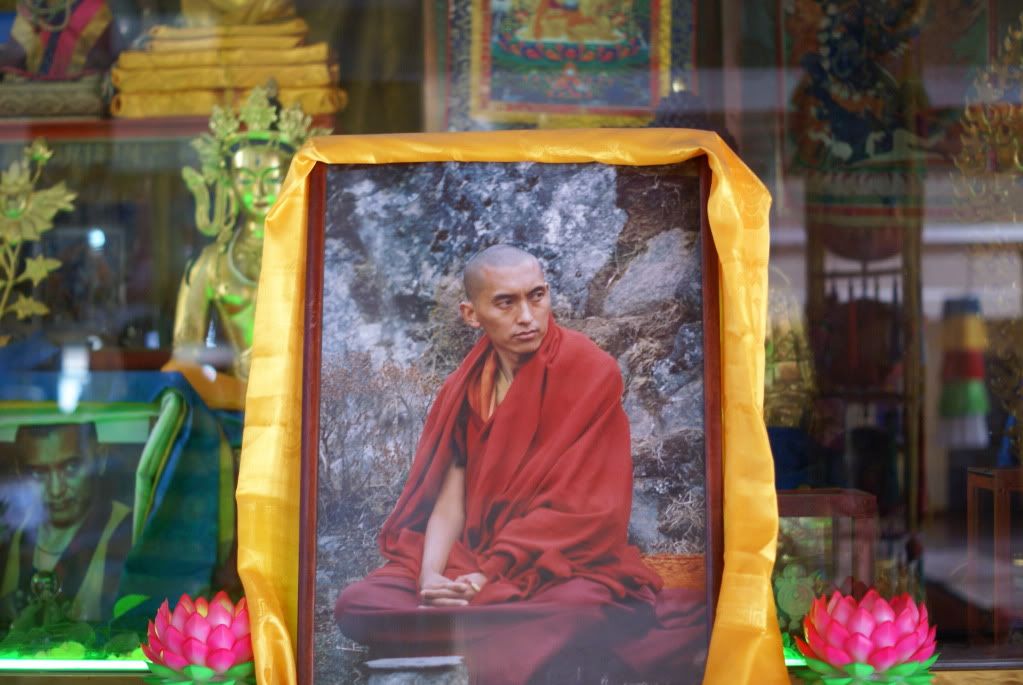
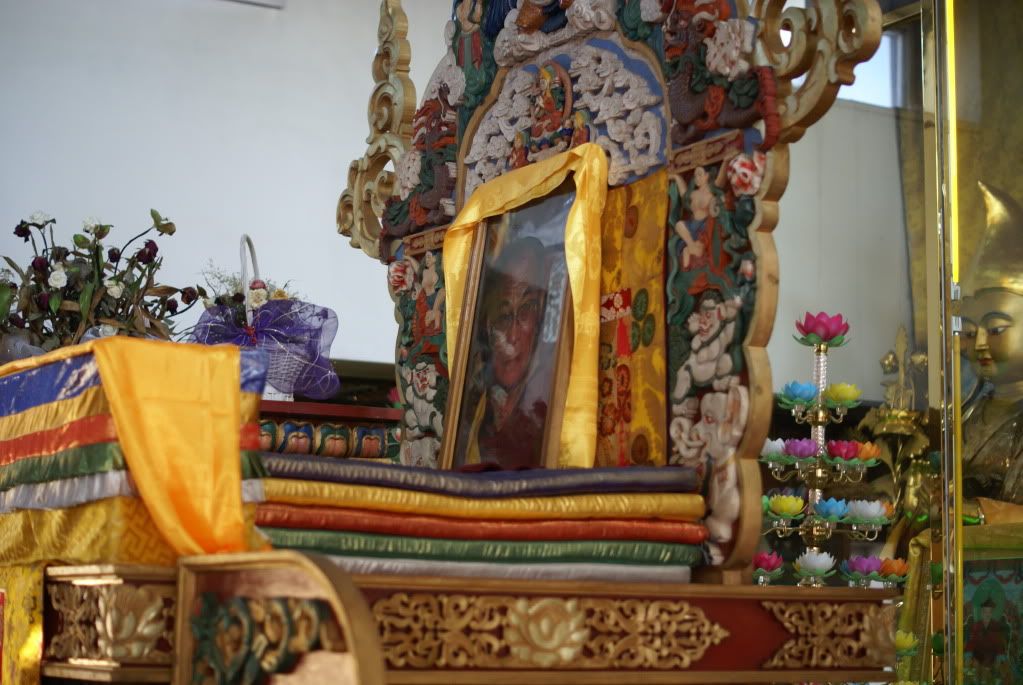
So glad you guys are having fun in Mongolia! My research there actually centered around environmental issues, social movements, and corruption. You think the tourism industry is bad? Imagine what the much much much more lucrative mining industry is doing to them.
ReplyDeleteHope you're having so much fun. If there's anything I can help you with while you're over there (though I can't imagine what since you have the Joshi's and seem to have made some solid Mongolian friends), let me know!
- Britt Van
also...did you see biden at all??
ReplyDelete